HELP IS ON THE WAY
As the decade opened, the health sector was thrust into the spotlight, with a number of Trinitarians on the frontline and behind the scenes in the fight against COVID-19.

For people not living in Melbourne during the darkest days of the pandemic, it may be difficult to comprehend just how grim life actually became. Of all of Australia’s capitals, Melbourne was particularly hard hit. To have avoided any feelings of isolation, stress or uncertainty, you would’ve had to have been living under a rock. Coincidently, living under a rock is what it felt like much of the time. And, of course, there was the fear of serious illness, even death.
With global health authorities charged with managing the emergency and navigating a way out, many Trinity College alumni found themselves on the frontline of the pandemic response, helping to develop vaccines, design mobile technology or lend holistic support to those most impacted. But what was life really like in those dark days, and what is the likely legacy of the pandemic for the health sector?
From the outset, few people would have felt the weight of responsibility more acutely than Professor Andrew Cuthbertson AO (TC 1980), the retiring chief scientist and head of research and development at biotech behemoth CSL. Andrew was a non-resident at Trinity College during the 1980s, following in the footsteps of his father Alan Cuthbertson, a senior fellow and tutor in surgery at the college, who sadly passed away in 2021. Andrew’s son Jack was a Trinity resident in 2012-13.
As COVID-19 spread globally and the death toll mounted, Andrew was asked to delay retirement to help lead Australia’s vaccine response. ‘Well, one could hardly say no,’ he reflects.
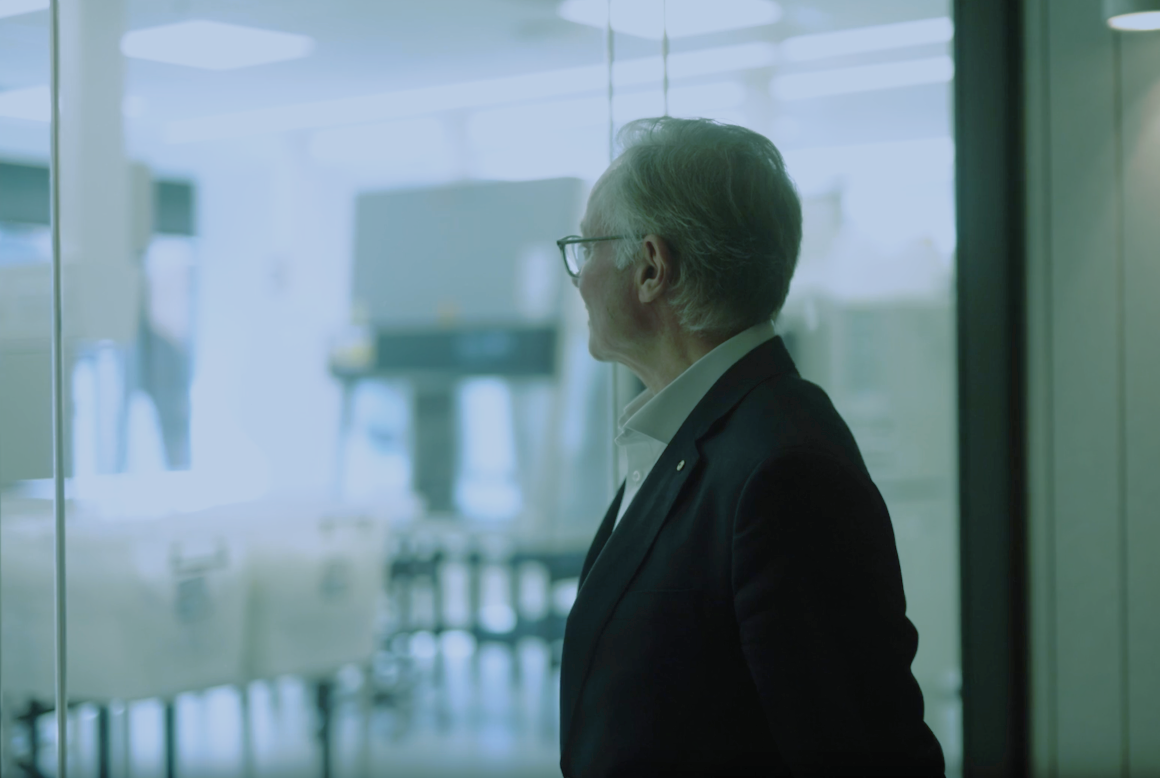
The stakes couldn’t have been higher, and the project started well. By early 2020, CSL had teamed up with the University of Queensland, which was making great progress on a potential vaccine. At one point, there were hundreds of staff working around the clock on the program.
‘It was an exciting project and a brilliant idea,’ says Andrew. ‘Other than public health measures, there was no other way of stopping the virus spreading and killing people, so we had to do this.’
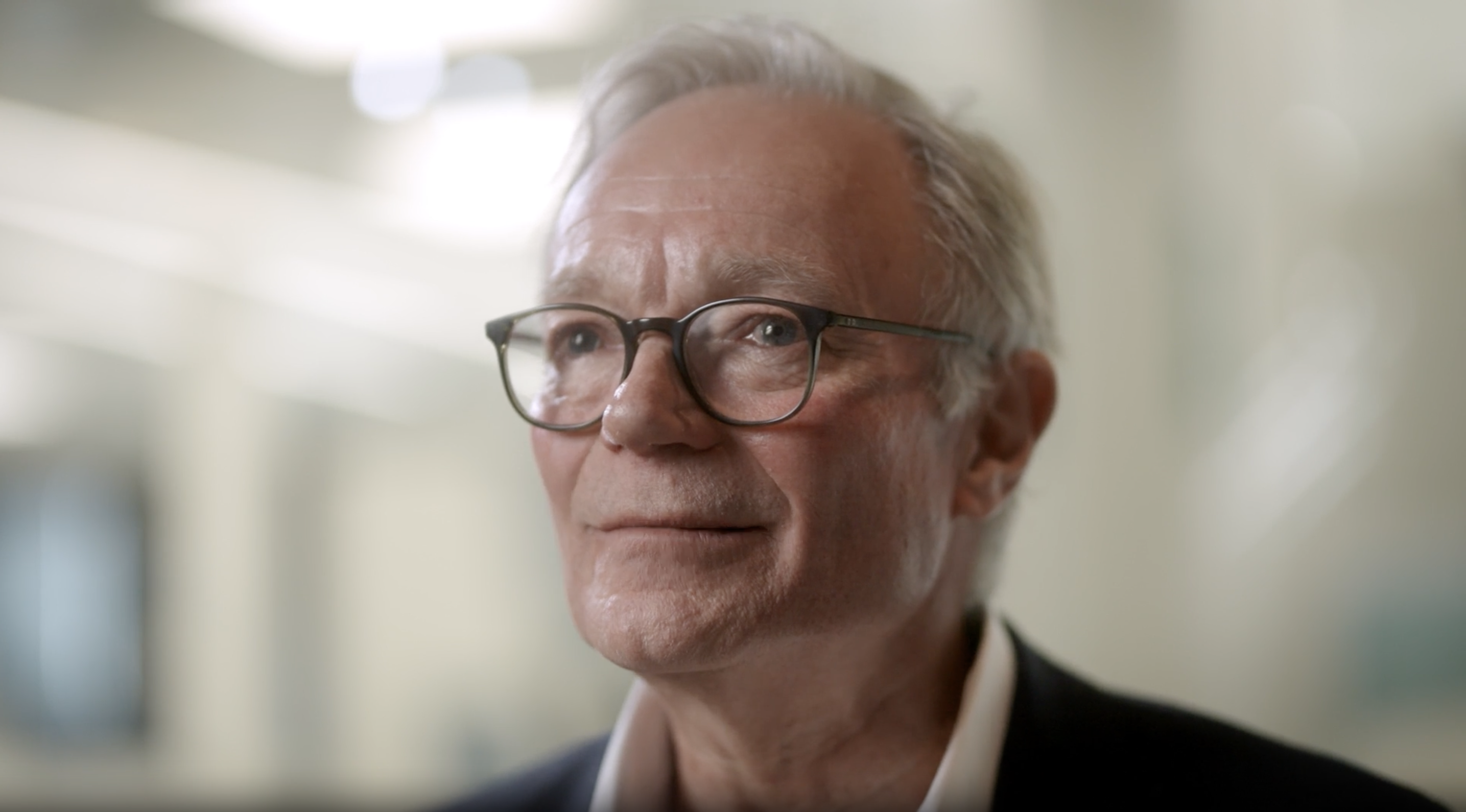
Andrew Cuthbertson (TC 1980) helped lead Australia's COVID-19 vaccine response.
Andrew Cuthbertson (TC 1980) helped lead Australia's COVID-19 vaccine response.
The experimental vaccine went into early clinical trials and appeared to be working well. Then came heartbreak, with the vaccine found to be triggering false positives in HIV tests. ‘It wasn’t dangerous to people, but the decision was made to shut the program down,’ says Andrew. ‘It was devastating.’
There was no time to wallow in disappointment. Attention turned to the other side of the world and to a promising vaccine being developed by Oxford University and AstraZeneca. At the request of the Australian government, CSL staff pivoted and were able to start manufacturing the vaccine at scale in their Melbourne plant, and by February 2021, Australia had started taking its first steps out of the pandemic.
‘At that time, there was no vaccine available in Australia,’ says Andrew, ‘so the responsibility was immense.’
For any biotech company, developing a vaccine to fight a global pandemic is as big as it gets, underscored by the fact that it was developed in a time of great uncertainty.
‘We had great gaps in our knowledge,’ Andrew says of the pressure-cooker moment. ‘We didn’t know how the virus spread, or how deadly it was. There was a huge amount of work going on behind the scenes. But there was also that wonderful moment of realisation when we saw that we could actually do it.’
Andrew says the way the medical sector embraced collaboration would be a lasting legacy of the pandemic. ‘The world is involved when you have a global pandemic, so sharing information is vital. Rapid identification of threats, rapid development of diagnostic tests, followed by vaccines and antiviral agents – we can do all those things better and faster now, so long as we don’t forget the lessons.’
New initiatives such as the Cumming Global Centre for Pandemic Therapeutics (which will be part of the Doherty Institute) and the opening of CSL’s new global headquarters in Parkville, Melbourne, gives Andrew confidence that we’ll be better prepared for a future pandemic.
‘And there will be a next time,’ he warns.
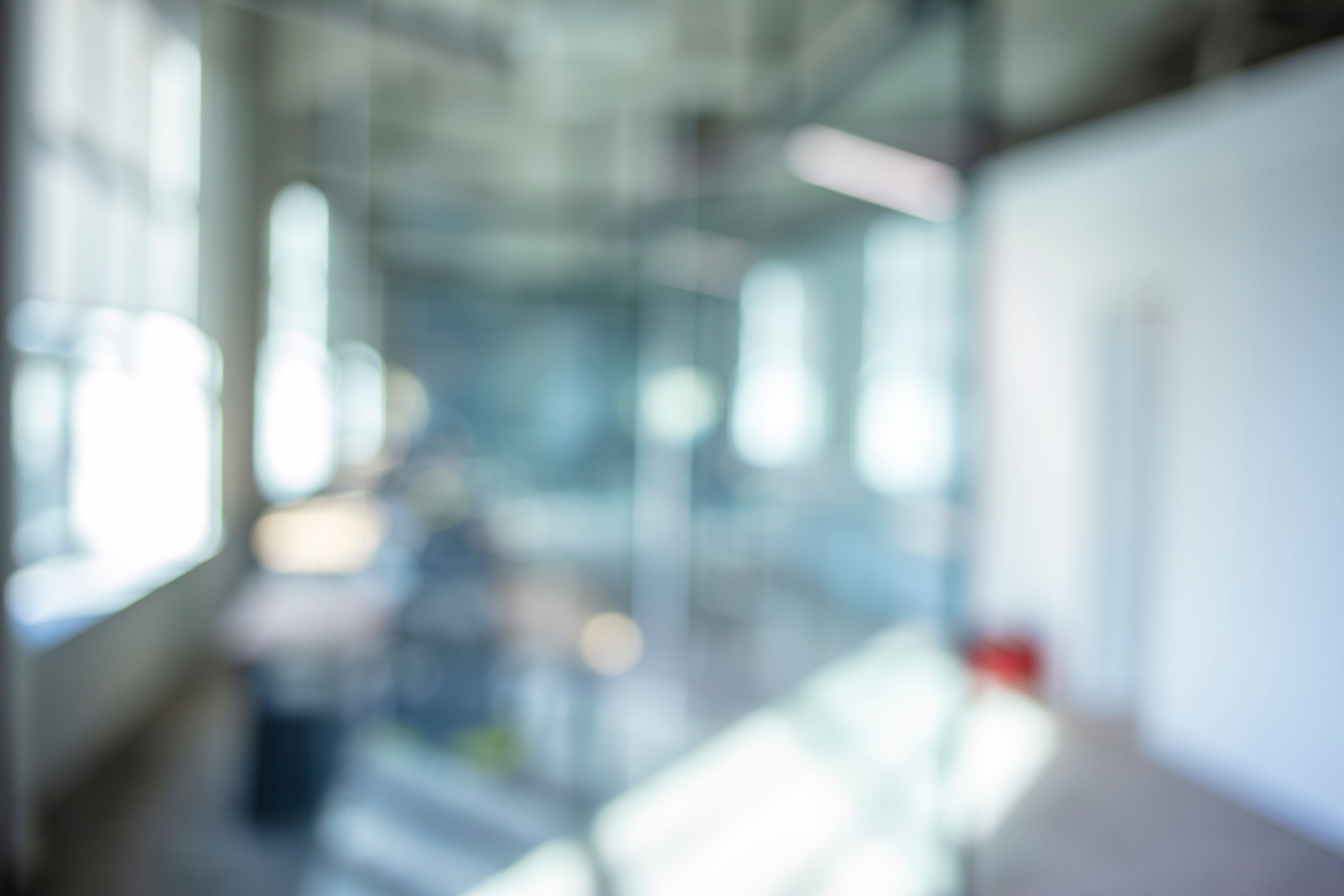
Also contributing to Australia’s COVID response, but more in the background, was Trinity College alum James Kane (TC 1996), the co-founder and CEO of Two Bulls digital product studio, which he established with fellow Trinitarian Noah Harlan (TC 1996). Two Bulls (which was originally named ‘Bulpadok’ in honour of Trinity’s famous open space) were invited to design the Services Victoria mobile phone app, which allowed users to check into entertainment and other venues via a QR code to help track COVID-19 transmissions. It became the most downloaded app in the country in 2021. Later, vaccination certificates – the ultimate passport out of lockdowns – were integrated within it.
‘We were working on something that couldn’t fail,’ says James. ‘It was hugely challenging but also very rewarding.'
'When you’re stuck inside during a pandemic there’s nothing better to work on than the thing that gets you out of it.’
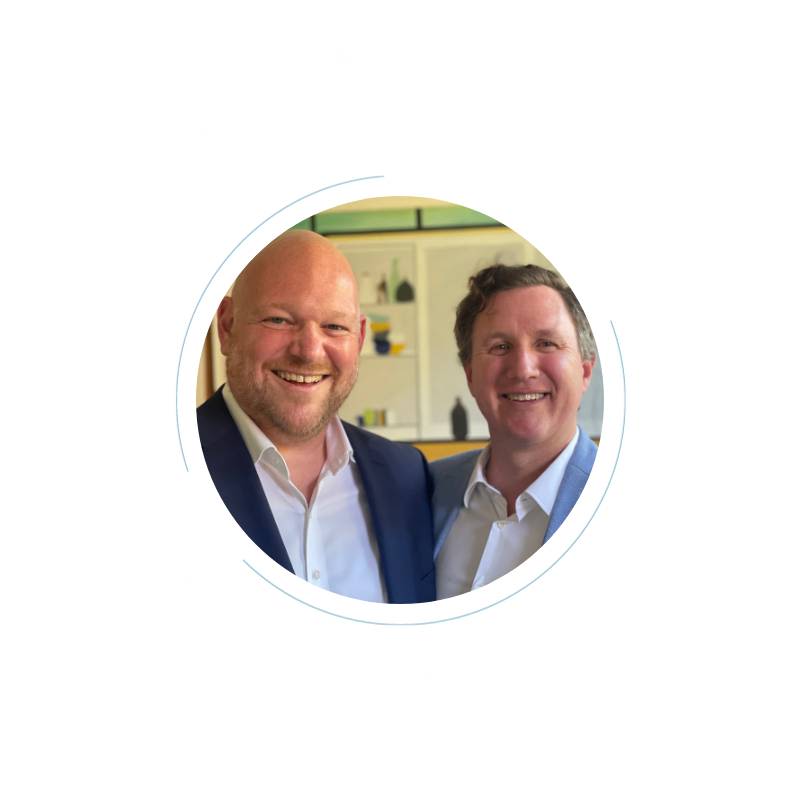
Noah Harlan and James Kane (both TC 1996) developed the Service Victoria app – the most downloaded app in Australia in 2021.
Noah Harlan and James Kane (both TC 1996) developed the Service Victoria app – the most downloaded app in Australia in 2021.
James and Noah had been developing apps in the medical space since 2015 and had become adept at creating engaging, scalable apps within a highly regulated environment. When the pandemic arrived, those skills were exactly what were needed. ‘It felt like we’d been working towards this for a decade,’ says James.
The app’s development stands as the most challenging, unusual and memorable chapter of James’s career. ‘Government was working at light speed, and so were we,’ he says. ‘Everything was evolving so quickly. We’d be watching press conferences and learning in real time what we’d be needing for the next iteration of the app.’
While he doesn’t long to repeat the experience, James acknowledges that the pandemic helped fast-track many positive initiatives for the health sector, such as the development of remote and digital healthcare solutions. ‘If you’re engaging with a hospital now, you’re likely to have apps or digital components.’
Two Bulls is now working on home diagnostics apps, the new ‘front line’ for healthcare. ‘So, if you can do that without needing to go to a doctor, it takes an enormous strain off the healthcare system.’

That strain was particularly evident to Elizabeth Thompson (TCTS 2020) throughout the pandemic. A chaplain with NSW Ambulance, Thompson holds a Graduate Certificate of Divinity from Trinity College Theological School and is currently working on her PhD in theological studies. As a chaplain, Elizabeth offers holistic support to both paramedics and members of the public during and in the aftermath of traumatic events.
She credits Trinity for contributing to her depth of academic knowledge and her lived experience of ministry and pastoral care. One of the most valuable pieces of advice she has received was imparted by Dr Fergus King, director of Trinity’s Ministry Education Centre, who once told her the first thing to do when feeling flustered was simply to put on the kettle and make a cup of tea.
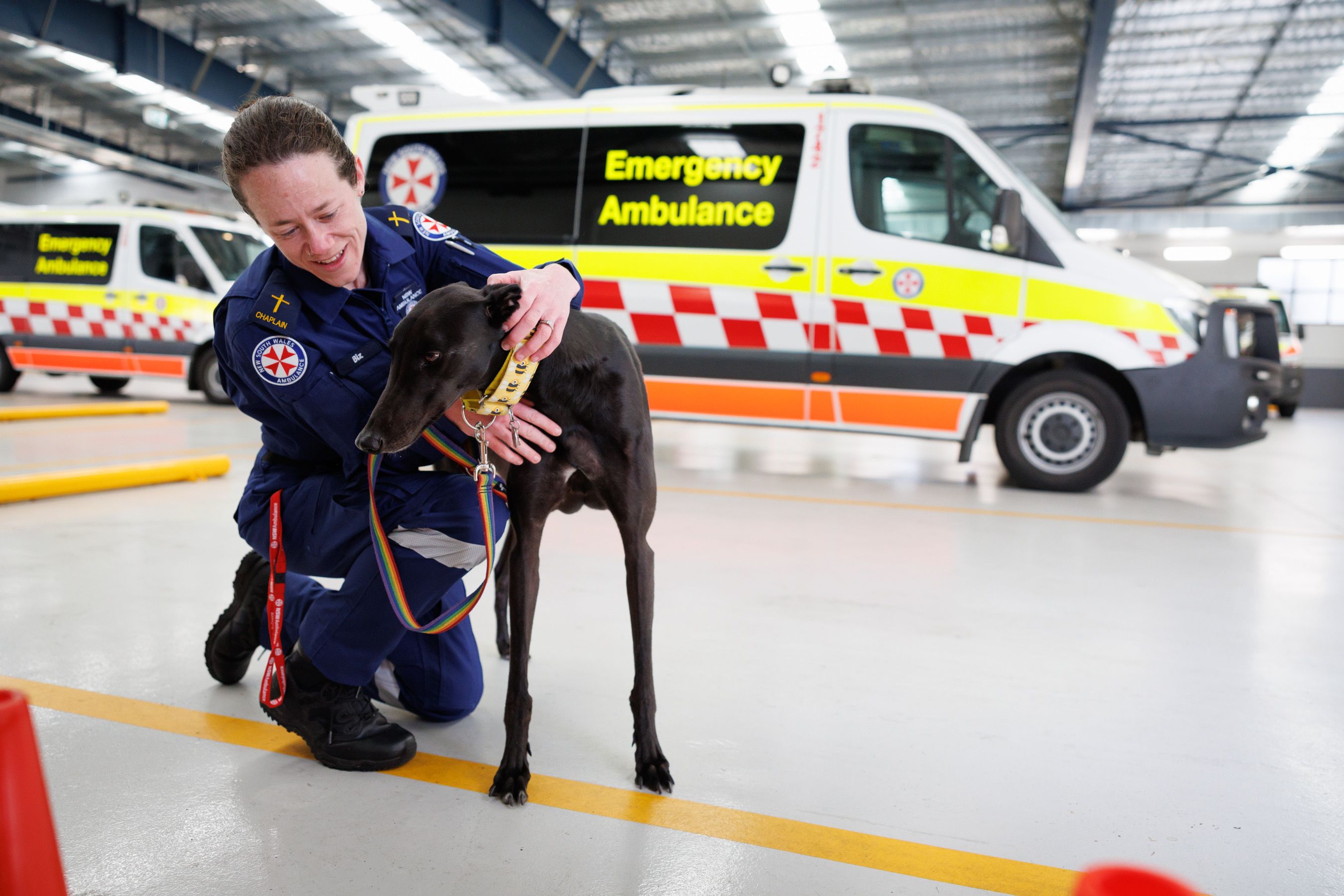
‘In the emergency services, my charge is to be the calm, non-anxious presence,’ Elizabeth says, ‘so I need to start with making myself calm and non-anxious.’
Unfortunately, the pandemic was anything but a calm time; people, everywhere, were anxious. Added to that was the compounding impact of government-imposed health restrictions, with Elizabeth facing the challenge of her career.
‘The hardest part was finding ways to support my crews when I couldn’t be there in person,’ she says, referring to periods when non-essential staff weren’t permitted to be on station. ‘The risk was just too great. If you had knocked a station out with COVID that could have been a public health emergency.’
Elizabeth found ways to adapt, to continue fulfilling a role that became increasingly vital.
‘I remember making video calls on my phone, recording encouraging messages and letting paramedics know I was still there, just trying to maintain that presence.’
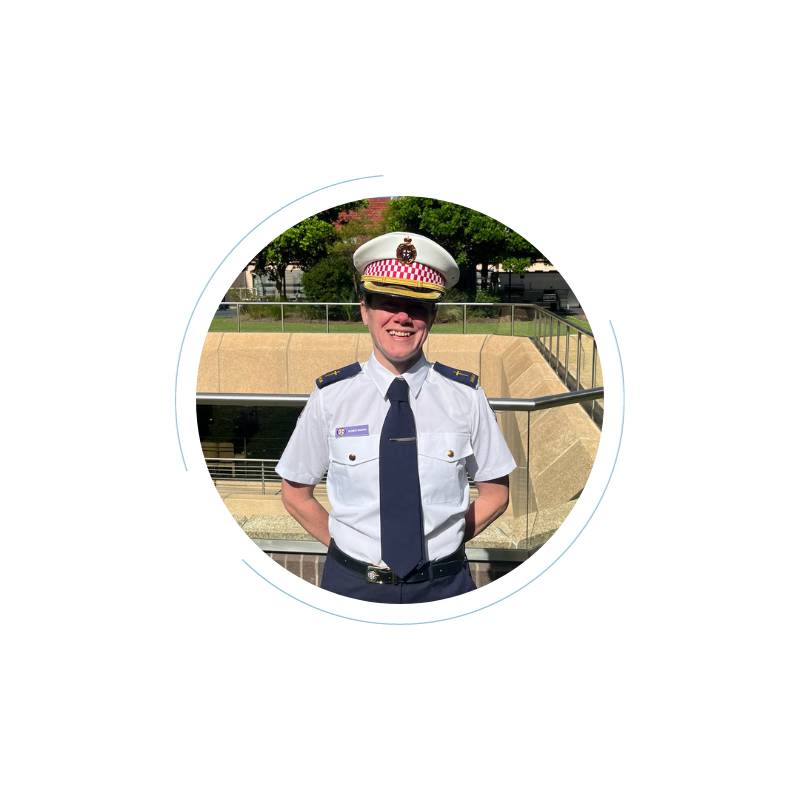
Elizabeth Thompson (TCTS 2020) saw the impacts of COVID up close as a chaplain for NSW Ambulance.
Elizabeth Thompson (TCTS 2020) saw the impacts of COVID up close as a chaplain for NSW Ambulance.
The barriers to connection were even starker for the general public, and Elizabeth had to find different ways to offer support and pastoral care to families dealing with acute loss and trauma.
‘I remember supporting a family who’d experienced a sudden death,’ she recalls. ‘Relatives wanted to say goodbye but couldn’t come in person. I brought the local priest in, who prayed with the family while I held mobile phones on speaker so family members could listen in on the rites and offer their own prayers.
‘I remember hearing the muffled sobs and thinking what a privilege it was to help facilitate that.’
Elizabeth says recognising the potential of technology to maintain connection has been a positive legacy. ‘There might be paramedics who I don’t see for a while, but I’ll often now make a little video and send it to them, just to maintain connection. Embracing the agility that technology offers has been a real gift.’
Paramedics, too, have learned how to better integrate technology to help meet clinical needs, with virtual call centres available for clinicians to access patients. Above all, the pandemic illuminated the role of healthcare workers as never before.
‘Being a healthcare worker is a difficult job, and that reality was illuminated in a very public way. They were the visible ones, and their clinical skill and personal sacrifice really shone.’
>>> READ NEXT: COVID AND THE COURT
